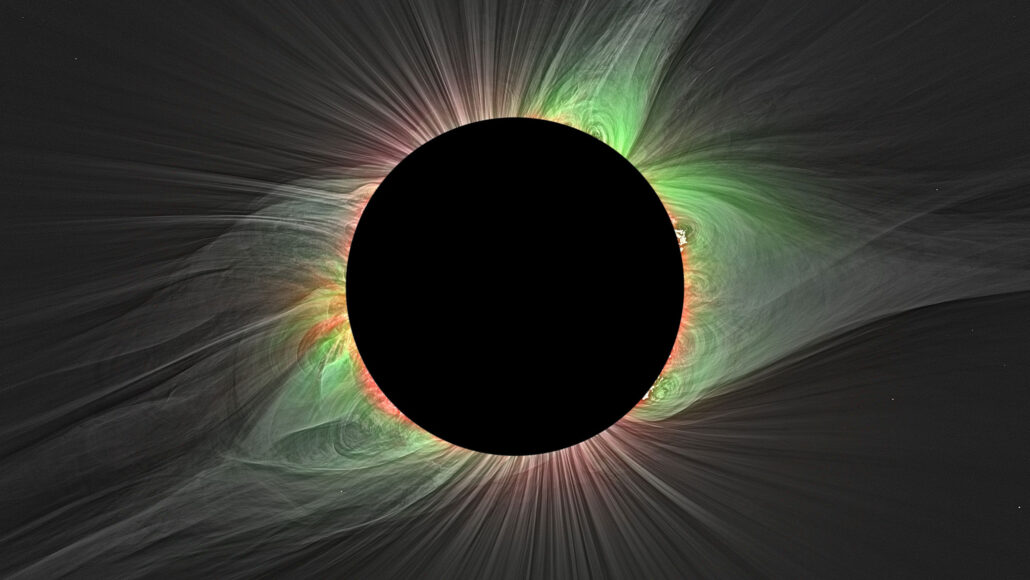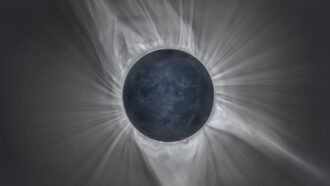
Earth
Get ready for the 2024 total solar eclipse
A total solar eclipse will race across North America on April 8, 2024, providing a rare opportunity for both scientists and casual observers.
Come explore with us!

A total solar eclipse will race across North America on April 8, 2024, providing a rare opportunity for both scientists and casual observers.

The sun will be near the peak of its activity cycle during the eclipse on April 8, 2024. That will make it a great time to crowdsource solar research.

Emerging evidence points to the existence of rogue black holes and other cosmic oddities — such as big black holes in tiny galaxies.

Six young researchers took home the top awards, each valued at a minimum of $50,000. Hundreds more shared nearly $9 million in prizes at international event.

The unusual, fruit-inspired structure of this material provides quick filtration that could satisfy people's daily water needs.

Cosmic swirls of gas, dust and plasma, accretion disks reveal the shadowy silhouettes of black holes and more.

Like Luke Skywalker’s home, planets orbiting two stars may be plentiful. A new computer model suggests that many of those worlds could sustain life.

Equinoxes and solstices mark the maximums, minimums and mediums of hours spent in daylight.

A probe going through a wormhole should be able to send messages home before such a tunnel forever closes, a new computer model finds.

Calculus is math that deals with curves, from their changing slopes to the areas they enclose.